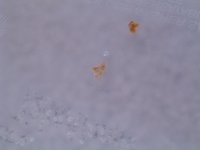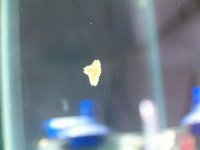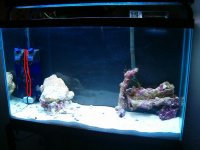herpencounter
Advanced Reefer
I have 2 really small star fish 1/4 inch both have 3 legs :lol:, when I first saw it I had 1 that I had known of then, about 2 weeks of me having the small guy he had lost 2 legs idk how, and about 2 weeks after that I saw another, he to has 3 legs. So any info u have on them tell me...
sorry about the pictures I have really pore lighting that I was using...
I cant get pictures to upload as they are to big and I cant edit them right because I have to use paint... err makes me mad
ok it works I have to go to photobucket then save to my pictures photobucket automatically resizes the picture...
sorry about the pictures I have really pore lighting that I was using...
I cant get pictures to upload as they are to big and I cant edit them right because I have to use paint... err makes me mad
ok it works I have to go to photobucket then save to my pictures photobucket automatically resizes the picture...








